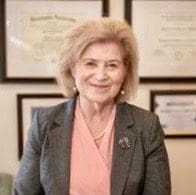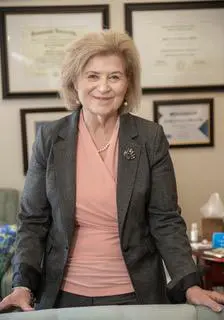Search Posts
Recent Posts
- To Do in RI: 2-day Newport Flower Show – Authors on floral design to speak June 21, 2025
- In the News… quick recap of the week’s news 6.21.25 June 21, 2025
- Providence Art Club Prestigious National Open Juried Exhibition Begins June 21, 2025
- Burn with Kearns: “30-day Shreds” Fail the 50+ Market. What To Do. – Kevin Kearns June 21, 2025
- Rhode Island Weekend Weather for June 21/22, 2025 – Jack Donnelly June 21, 2025
Categories
Subscribe!
Thanks for subscribing! Please check your email for further instructions.

At GORE-TEX there are no management layers. How do they get the work done?
By Mary T. O’Sullivan, MSOL
“It starts with that word, “Associate.” We’re more than employees; we’re trusted stewards of our business.” – Bill Gore
At W.L. Gore, the chemical company most famous for Gore-Tex, there are no management layers and there is no organizational chart. Few people have titles, and no one has a boss. The core operating units are small, self-managing teams, all of which share two common goals: “to make money and have fun.” There are no ranks or titles; some associates have earned the simple appellation “leader”. Senior leaders do not appoint junior leaders. Rather, associates become leaders when their peers judge them to be such. A leader garners influence by demonstrating a capacity to get things done and excelling as a team builder. At Gore, those who make a disproportionate contribution to team success, and do it more than once, attract followers. “We vote with our feet,” says Rich Buckingham, a manufacturing leader in Gore’s technical-fabrics group. “If you call a meeting, and people show up, you’re a leader.”
What does this mean in terms of the correlation between communication, leadership and team building? The ethos, or corporate culture, at WL Gore company clearly is in step with the company’s mission and vision. Moreover, the company thrives as a flat organization. There is no “red tape”, no layers, no barriers to communication. Teams are built around natural leaders. “Leaders” can’t be convenient political appointees, or “rotated” into a corporate “welfare” job (as in the Dilbert Principle); the leadership style is based around a simple leadership principle: “If you prove you can lead, people will follow”. Teams are created around the simple mission and vision, keeping all employees motivated and engaged at a high level. Proof is in the pudding, as there is no boss to micro-manage or “oversee” work. All employees must be self-starters, self-motivated, and require little supervision. This pre-requisite lays the groundwork for a specific type of employee; no laggards need apply.
What could our local businesses do to develop a leader and this type of work environment? In a freewheeling, Darwinian environment such as the W. L. Gore culture, a leader is faced with “survival of the fittest”. If he/she is aggressive and has a strong track record of success, he/she will attain followers. This is an interesting ethos, because it forces a continuous stream of creativity to flow. It also compels team members to gravitate toward the leader with the most open idea flow. Teams exist as long as the leader consistently produces success; so, a natural symbiosis occurs as well. And because there is no pressure from a debilitating bureaucracy, ideas become reality: If not, a new team leader emerges, and the leadership cycle repeats. It’s also fascinating that “influence” has recently become one of the key criteria of leadership. At WL Gore, influence and leadership are one and the same.
Mary T. O’Sullivan, MSOL, PCC, SHRM-SCP
147 Francis Horn Drive, Kingston, RI, 02881
mary@encoreexecutivecoaching.com
www.encoreexecutivecoaching.com
401-742-1965
Mary T. O’Sullivan, Master of Science Organizational Leadership, International Coaching Federation Professional Certified Coach (ICF-PCC), Society of Human Resource Management Senior Certified Professional (SHRM-SCP). Graduate Certificate in Executive and Professional Coaching, University of Texas at Dallas. Member Beta Gamma Sigma, the International Honor Society. Advanced Studies in Education from Montclair University, SUNY Oswego and Syracuse University. Mary is also a certified Six Sigma Specialist, Contract Specialist, IPT Leader and holds a Certificate in Essentials of Human Resource Management from SHRM. Mary is also an ICF certified Appreciative Inquiry Practitioner, and a Certified EQi-2.0 and EQ360 Practitioner.

Mary O’Sullivan has over 30 years’ experience in the aerospace and defense industry. In each of her roles, she acted as a change agent, moving teams and individuals from status quo to new ways of thinking, through offering solutions focused on changing behaviors and fostering growth. In additional, Mary holds a permanent teaching certificate in the State of New York for secondary education and taught high school English for 10 years in the Syracuse, NY area. Today, Mary dedicates herself to helping good leaders get even better through positive behavior change.
